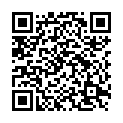|
|
|
| Module code: DFBTO501 |
|
|
4V (4 hours per week) |
|
3 |
| Semester: 5 |
| Mandatory course: yes |
Language of instruction:
German |
Assessment:
Written exam 90 min. (50%) and tests over the course of the semester (50%)
[updated 30.04.2025]
|
DFBTO501 (P620-0550) International Tourism Management, Bachelor, ASPO 01.10.2018
, semester 5, mandatory course
DFITM-501 (P620-0540) International Tourism Management, Bachelor, ASPO 01.10.2020
, semester 5, mandatory course
|
60 class hours (= 45 clock hours) over a 15-week period.
The total student study time is 90 hours (equivalent to 3 ECTS credits).
There are therefore 45 hours available for class preparation and follow-up work and exam preparation.
|
Recommended prerequisites (modules):
None.
|
Recommended as prerequisite for:
|
Module coordinator:
Dr. Julia Frisch |
Lecturer:
wechselnde Dozierende
[updated 13.03.2017]
|
Learning outcomes:
The initial level is C1.
After successfully completing this module, students will:
- be able to communicate actively and passively at a business level, both verbally and in writing,
- understand moderately difficult to difficult texts that are relevant in terms of subject matter, culture, and politics,
- understand technically relevant, spoken texts with different content and focuses,
- be able to express critical and multi-perspective opinions on controversial topics in the field of study,
- have deepened their intercultural sensitivity with regard to business communication,
- be linguistically preapred for everyday working life in a country where the target language is spoken,
[updated 30.04.2025]
|
Module content:
(Inter)culturally relevant topics from the world of international business communication
in general and with a focus on the countries where the target language is spoken
Focus on the future professional reality of students
Promotion of students´ ability to engage in discussion
Special support for students´ writing skills
Current topics relating to the culture and society of selected countries where the target language is spoken
Subject-specific vocabulary in the context of the topics (areas) covered
- Simulations of negotiation processes from everyday working life
Consideration of all four language skills (speaking, writing,
listening, reading)
[updated 30.04.2025]
|
Teaching methods/Media:
- Presentations by the lecturer
- Plenary discussions
- Group discussions
- Partner work
- Group work phases where students tackle specific tasks
- Interactive, multimedia language lab
- Short presentations by the students
[updated 30.04.2025]
|
Recommended or required reading:
Teaching materials: texts and exercises compiled by the lecturer
PowerPoint presentations by the lecturer or equivalent visualization forms
If applicable, lecturer´s learning platform
Internet resources
Multimedia-supported teaching and learning material to intensify teaching will be provided in the course and via Moodle.
[updated 30.04.2025]
|

